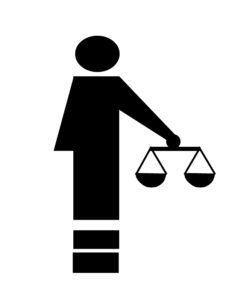 The City of San Diego has passed a new law adding Section 8 Housing Choice Vouchers and other rental assistance programs as a protected source of income.[1] San Diego has now joined several other cities who have similar protections.
The City of San Diego has passed a new law adding Section 8 Housing Choice Vouchers and other rental assistance programs as a protected source of income.[1] San Diego has now joined several other cities who have similar protections.
The Department of Housing and Urban Development (HUD) conducted a study titled A Pilot Study of Landlord Acceptance of Housing Choice Vouchers.[2] The study was designed to conduct voucher tests across neighborhoods in several sites, roughly in proportion to the prevalence of voucher-affordable housing in each site.
In the first stage, the voucher acceptance test, was conducted in five sites: Fort Worth, Texas; Los Angeles, California; Newark, New Jersey; Philadelphia, Pennsylvania; and Washington, D.C. During these tests, a female tester who would be perceived as White called landlords advertising rental units to ask, “Do you accept housing vouchers?” If a landlord answered that he or she accepted vouchers, the test moved on to the second and third stages, which were conducted in three sites: Fort Worth, Los Angeles, and Newark.
In the second stage, pairs of White, Black, and Hispanic female testers, matched on all characteristics (including race and ethnicity) other than voucher use (for example, White voucher holder versus White non-voucher holder, Black voucher holder versus Black non-voucher holder, and Hispanic voucher holder versus Hispanic non-voucher holder) conducted telephone tests to determine whether voucher holders were told about available housing and were able to secure appointments to view available units.
So, how difficult is it to find voucher-affordable units?
For 16 months, the study screened more than 341,000 online advertisements across the five study sites to find 8,735 advertisements for rental housing that appeared to be voucher-eligible based on information in the ad. On average, they screened 39 advertisements to identify one potentially eligible unit. The effort required to find voucher-eligible housing differed dramatically across sites. Landlords were more likely to deny voucher holders in low-poverty areas compared with high-poverty areas, particularly in the sites with the highest voucher denial rates
Additionally, Landlords are more likely to miss an appointment with voucher holders as compared to non-voucher holders.
The challenges encountered finding voucher- affordable rental housing in some sites and neighborhoods suggest that voucher holders’ housing searches are daunting. The difficulty finding landlords who will accept vouchers, particularly in low-poverty areas, likely increases the cost and duration of voucher housing searches, limits voucher holders’ housing and neighborhood options, and increases costs to local PHAs and HUD.
What does HUD recommend to do?
- Pursue legal protections for voucher holders such as a source of income protection that includes vouchers.
- Encourage landlord participation and recruit landlords, particularly in low-poverty neighborhoods. This may include program incentives for landlords.
- Set rents to be more competitive and improve program management. For vouchers to be appealing to private market landlords, they must offer rent payments comparable with the market.
- Expand search time and provide housing search assistance. Vouchers holders are given a specific time frame to find a unit with their vouchers. By increasing this time, voucher holders are more likely to find a unit.
For More Information please call:
The Legal Aid Society of San Diego, Inc.
(844) 449-3500 / TTY (877) 734-2929 / www.lassd.org
The Legal Aid Society of San Diego Inc. offices are accessible to persons with disabilities.
This publication is funded under the U. S. Department of Housing and Urban Development
[1] San Diego Municipal Code § 98.0801.
[2] The Department of Housing and Urban Development, A Pilot Study of Landlord Acceptance of Housing Choice Vouchers (posted Sept. 20, 2018) available at https://www.huduser.gov/portal/pilot-study-landlord-acceptance-hcv.html.




